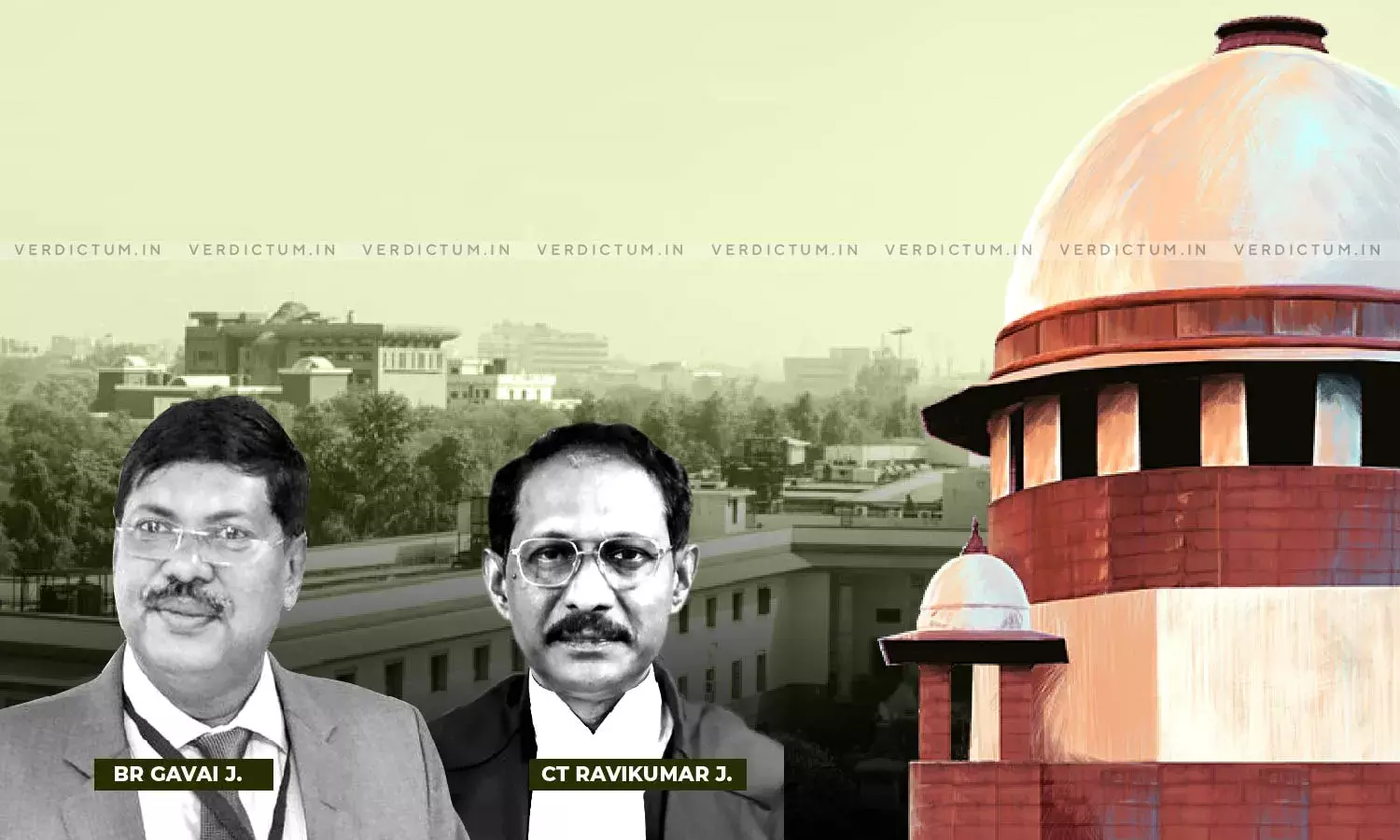If Seized Poppy Straw Tests Positive For Morphine & Meconic Acid, No Other Test Is Needed To Constitute Offence U/s. 15 NDPS Act- SC

A Supreme Court Bench of Justice BR Gavai and Justice CT Ravikumar heard a matter under the Narcotic Drugs and Psychotropic Substances Act, 1985, and held that "once a Chemical Examiner establishes that the seized 'poppy straw' indicates a positive test for the contents of 'morphine' and 'meconic acid', it is sufficient to establish that it is covered by subclause (a) of Clause (xvii) of Section 2 of the 1985 Act and no further test would be necessary for establishing that the seized material is a part of 'papaver somniferum L'."
In the same vein, it was held that "once it is established that the seized 'poppy straw' tests positive for the contents of 'morphine' and 'meconic acid', no other test would be necessary for bringing home the guilt of the accused under the provisions of Section 15 of the 1985 Act".
AAG Abhinav Mukerji appeared for the State, and Senior Counsel Neeraj Jain appeared for the Respondents. Counsel K Parameshwar appeared as Amicus Curiae.
In this case, the accused was caught indulging in the illicit trading of "poppy straw" by some police officers on patrolling duty. It was alleged that she had kept a huge quantity of "poppy straw" in a room where fodder for cattle had been stacked.
A search of the accused's premises revealed a bag containing 20 kilograms of "poppy husk", from which two samples were separated and sealed. The accused was arrested, and she made a disclosure statement in police custody, which led to the discovery of another 62 kilograms of "poppy husk". Samples were separated and sealed.
The samples were sent to the Chemical Examiner, who opined that the samples contained contents of "poppy husk". After the investigation was complete, the accused was charged with the offence punishable under Section 15(c) of the NDPS Act, for possessing a commercial quantity of "poppy straw.
The Trial Court found her guilty and convicted her. On appeal before the High Court, the High Court held that the two tests used by the Chemical Examiner to ascertain whether the samples contained "meconic acid" and "morphine" did not indicate that the stuff examined consisted of the parts of the plants which the Central Government had notified to be "opium poppy" under the NDPS Act. Therefore, the High Court set aside the conviction passed by the Trial Court.
Aggrieved, the State approached the Supreme Court.
After analysing the legislative background, the Supreme Court found that the question it must answer was - Whether it is sufficient for the prosecution to establish that the raw material contains 'morphine' and 'meconic acid' to bring it under sub-clause (a) of Clause (xvii) of Section 2 of the NDPS Act or is it necessary for the prosecution to establish further that, though the seized material contains 'morphine' and 'meconic acid', the genus of the seized material is 'papaver somniferum L' or any other species of 'papaver' from which 'opium' or any 'phenanthrene alkaloid' can be extracted and which is notified in the Official Gazette by the Central Government to be 'opium poppy' for the purposes of the 1985 Act.
In order to answer the same, the Court referred to international legislations and scientific developments, while also analysing the Mischief Rule, Purposive Interpretation, a catena of judgments like Hira Singh and Another v. Union of India and Another and E. Micheal Raj v. Narcotics Control Bureau, and the testimony of the Chemical Engineer.
In light of the same, the Supreme Court held that "once it is established that the seized material contains 'meconic acid' and 'morphine', it will be sufficient to establish that it is derived from the plant 'papaver somniferum L' as defined in sub-clause (a) of Clause (xvii) of Section 2 of the 1985 Act."
Dissenting the view taken by the High Court, the Supreme Court observed that "We fail to understand as to how a Chemical Examiner could be asked whether the seized material was a part of any other species of 'papaver' from which 'opium' or any other 'phenanthrene alkaloid' could be extracted when there is no such species of 'papaver' which has been notified by the Central Government to be 'opium poppy' for the purpose of the 1985 Act."
The Supreme Court noted that the High Court had allowed the appeal only on one ground without considering any other material, and therefore, the matter was remanded to the High Court for consideration afresh, and its order was set aside.
Accordingly, the accused was required to surrender, but the Supreme Court suspended the sentence until the matter is decided by the High Court.
Cause Title: State of Himachal Pradesh vs Nirmal Kaur @ Nimmo and Others
Next Story

